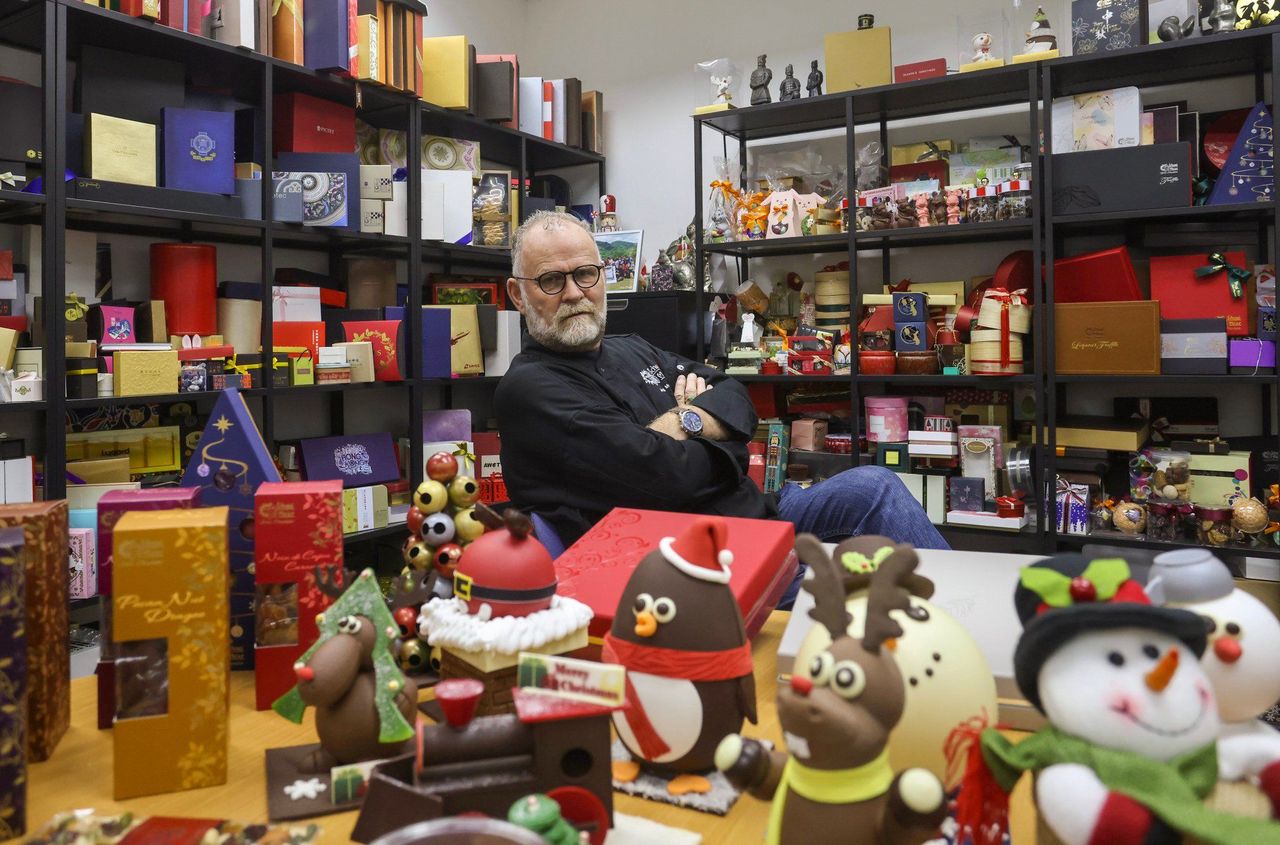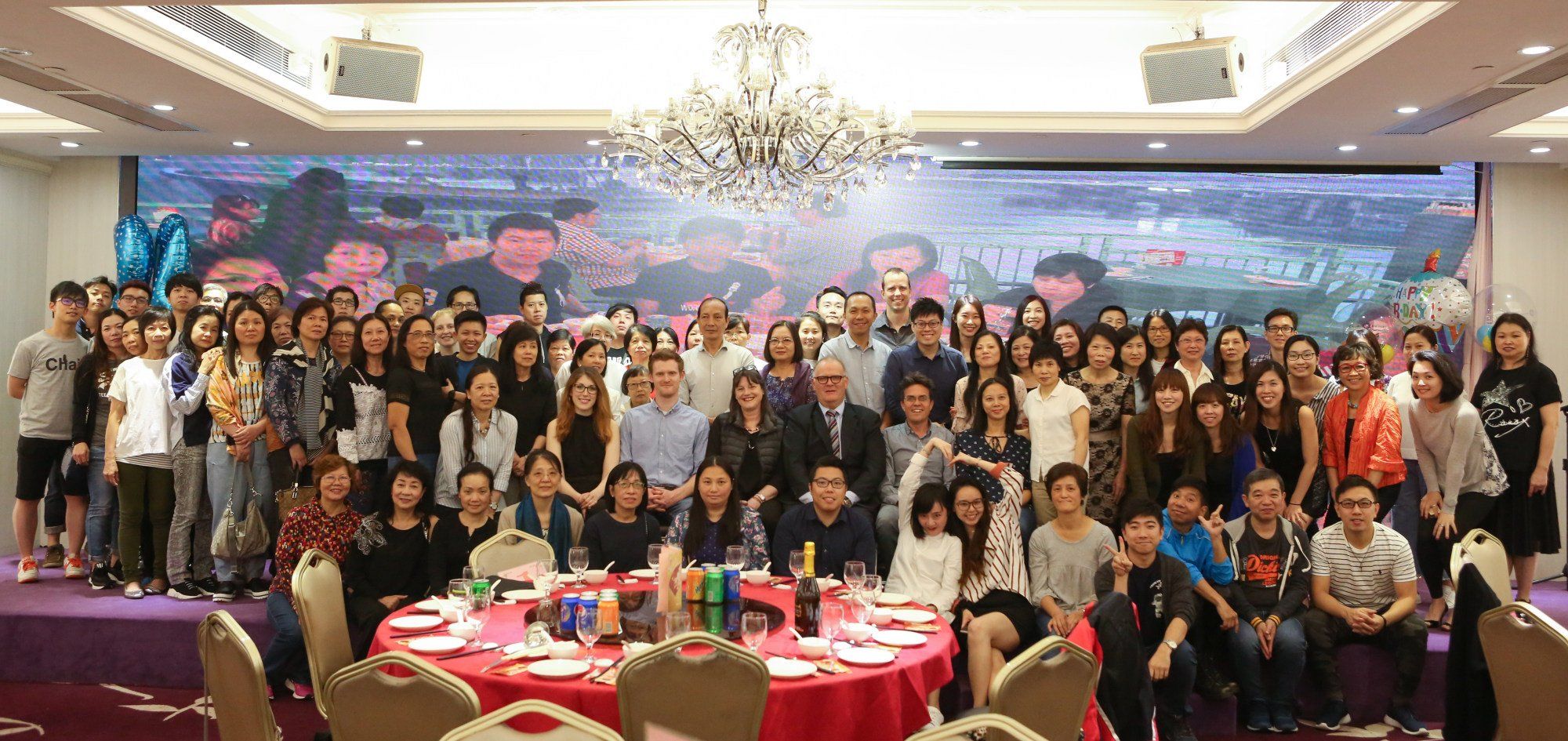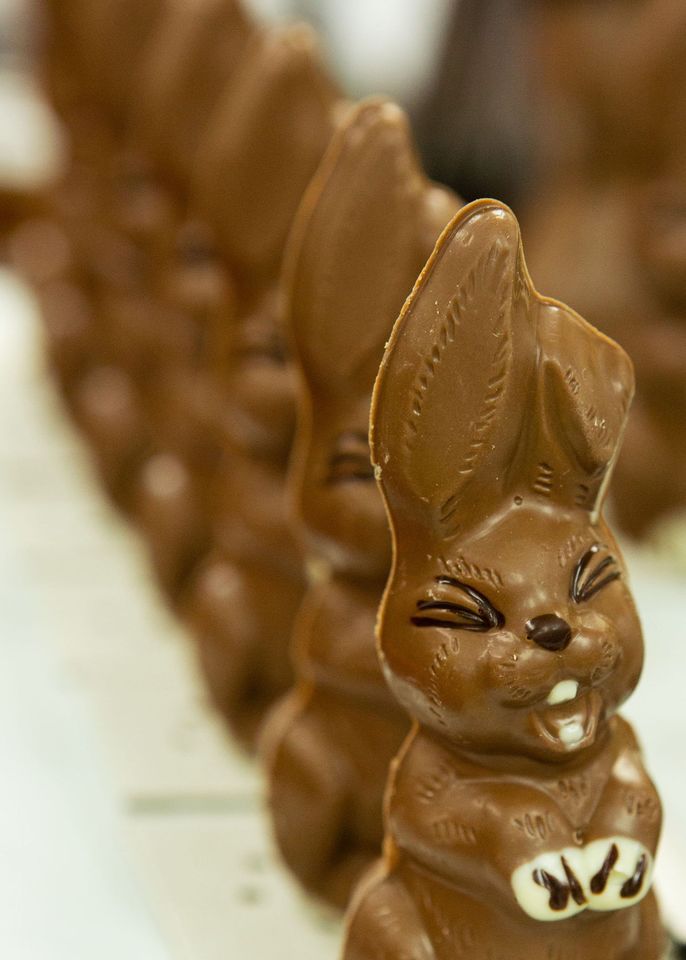Hong Kong News

Hong Kong chocolatier pulls through pandemic with best Christmas in 3 years
There is a buzz of activity on the factory floor of Gourmet House, one that was missing since the pandemic began three years ago.
Jurg Meier and his team of 100 employees are immersed in churning out hundreds of handcrafted chocolates, pastries and breads using traditional Swiss recipes at the factory, which has been operating in the light industrial area of Chai Wan since 1994.
“Christmas is back,” Meier, the 62-year-old Swiss national and owner, said in an interview with the Post. The company has been busy this month fulfilling orders for individual customers, restaurants, offices, airlines and five-star hotels in Hong Kong.
Stringent border control measures between Hong Kong and the mainland have taken a toll on the city’s economy over the past three years, with a dearth of tourists from across the border affecting local businesses.
 Gourmet House’s owner and managing director Jurg Meier.
Gourmet House’s owner and managing director Jurg Meier.
Still, the company managed to survive as it adopted come clever business strategies. With air and sea freight costs soaring by as much as 80 per cent in 2021, making important ingredients more expensive, the company began to bulk order supplies to reduce costs. Instead of using 20-foot containers, they went for 40-foot containers. Although it cost 20 per cent more, the company was able to bring twice as much supplies, Meier said.
The company also made use of the currency forward hedging tool to secure Swiss francs at favourable rates.
In addition, Gourmet House also fully utilised government subsidies during the pandemic to ensure no staff was laid off. The extra cost to stay afloat meant that Meier had to tap into his savings.
Having already been through the severe acute respiratory syndrome outbreak in 2003, Meier knew if the team remained resilient it would get through the Covid-19 pandemic.
“Our staff are fantastic, they’re so dedicated to the company and that’s why we also take care of them,” said Meier, who added that now during the holiday period the team has been working up to 14-hour long shifts.
“Gourmet House is like a big family,” said Chum Fung, a senior pastry baker who has been with the company for 20 years. “We help and look after each other during challenging times.”
 The Gourmet House team. The company did not lay off a single employee even after the pandemic dented sales considerably.
The Gourmet House team. The company did not lay off a single employee even after the pandemic dented sales considerably.
The latest data of Hong Kong’s retail sector showed sales in September rose 0.2 per cent year on year, the second straight month of little or no growth. Small and medium-enterprises took the brunt of Covid-19 measures.
Joshua Spirgi, manager of HkBreadBox, which sources products from Gourmet House, said his company’s sales slumped by as much as 80 per cent during the pandemic.
“Most of our clients were expat families and many of them left during the pandemic,” said Spirgi. “We spent a lot of time and effort on our marketing campaign and revive our connection to our remaining customers.”
HkBreadBox was forced to be savvy with its spending. To reduce operation costs it adopted the same delivery service as Gourmet House, which allowed both companies to share the delivery costs.
Nearly three years on, the government has slowly eased social-distancing rules in a bid to restore the city back to its pre-Covid environment, bring back tourists and revive the local economy. The most recent decision to drop the requirement to take rapid Covid-19 tests at bars and clubs is a sign of hope that business may be back to normal next year.
The nearly three-decade old Gourmet House has grown from a team of six to 100, witnessed two pandemics and the 2019 protests. During this time it has launched two brands: Panetina, a breadmaking division, was launched in 2014. A few years earlier, it launched the Schoggimeier chocolate brand, which sells direct to customers.
 Chocolates made by Gourmet House are supplied to five-star hotels in Hong Kong.
Chocolates made by Gourmet House are supplied to five-star hotels in Hong Kong.
Direct-to-customer sales was the last remaining resilient revenue source that survived during the pandemic, while orders from institutional clients like hotels and airlines dried up.
Meier said sales this December were back to nearly 90 per cent of 2019 levels. Keeping the team on board and maintaining morale was worth the investment to get through the pandemic, he added.
The same team had inspired some of the company’s bestselling products, including the “four brothers” chocolate: four nuts stuck together by chocolate, a treat particularly enjoyed by local consumers.
After a busy Christmas period, Meier and his team are eagerly looking forward to the Lunar New Year festivities that follow next month, which they are optimistic will take Hong Kong’s mojo back to its pre-pandemic levels.
“Chocolate was once a little bit exotic, only the very rich could afford,” said Meier. “But now, a piece of chocolate – whether it is the sugar rush or the ingredients – makes you happy.”











